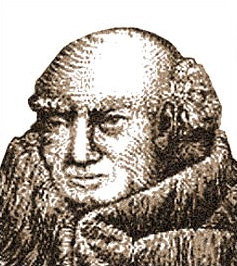|
John The Scot (c. 1266–1308), philosopher and theologian
{{hndis, Scotus, John ...
Johannes Scotus or Skotus, John Scotus, or John the Scot may refer to: * John Scotus Eriugena (c. 815–877), Irish theologian, philosopher, and poet * John Scotus (bishop of Mecklenburg) (c. 990–1066) * John Scotus (bishop of Dunkeld) (died 1203), Bishop of St Andrews and Dunkeld * John of Scotland, Earl of Huntingdon (c. 1207–1237) * Duns Scotus John Duns Scotus ( – 8 November 1308), commonly called Duns Scotus ( ; ; "Duns the Scot"), was a Scottish Catholic priest and Franciscan friar, university professor, philosopher, and theologian. He is one of the four most important ... [...More Info...] [...Related Items...] OR: [Wikipedia] [Google] [Baidu] |
John Scotus Eriugena
John Scotus Eriugena, also known as Johannes Scotus Erigena, John the Scot, or John the Irish-born ( – c. 877) was an Irish Neoplatonist philosopher, theologian and poet of the Early Middle Ages. Bertrand Russell dubbed him "the most astonishing person of the ninth century". The Stanford Encyclopedia of Philosophy states he "is the most significant Irish intellectual of the early monastic period. He is generally recognized to be both the outstanding philosopher (in terms of originality) of the Carolingian era and of the whole period of Latin philosophy stretching from Boethius to Anselm". He wrote a number of works, but is best known today for having written ''De Divisione Naturae'' ("The Division of Nature"), or ''Periphyseon'', which has been called the "final achievement" of ancient philosophy, a work which "synthesizes the philosophical accomplishments of fifteen centuries". The principal concern of ''De Divisione Naturae'' is to unfold from φύσις (physis), ... [...More Info...] [...Related Items...] OR: [Wikipedia] [Google] [Baidu] |
John Scotus (bishop Of Dunkeld)
John Scotus (Latin: ''Johannes cognomine Scotus'', also referred to as John the Scot or l'Escot) was a 12th-century bishop of St. Andrews and Dunkeld. John had studied at the University of Oxford and the University of Paris before beginning his ecclesiastical career at St. Andrews, entering the service of Bishop Richard. The latter made him Archdeacon of the see. His nickname would usually be taken to indicate that he was either a Gaelic-speaker or from Scotland-north-of-the-Forth (''Scotia''), but according to John of Fordun, he was from the villa of Podoth in Cheshire. He certainly had Scottish connections in his family. For instance, he was the nephew of both Robert of Scone, a previous bishop of Cell Rígmonaid, and Matthew, Bishop of Aberdeen. After the death of his patron Richard, he was elected by the cathedral chapter in either 1177 or 1178 in the presence of Cardinal Vibiano of Santo Stefano al Monte Celio, the Papal legate. His election, however, was not approved o ... [...More Info...] [...Related Items...] OR: [Wikipedia] [Google] [Baidu] |
John Of Scotland, Earl Of Huntingdon
John of Scotland (or John de Scotia or John le Scot), 9th Earl of Huntingdon and 7th Earl of Chester (c. 12076 June 1237), sometimes known as "the Scot", was an Anglo-Scottish magnate, the son of David of Scotland, Earl of Huntingdon by his wife Matilda of Chester, daughter of Hugh de Kevelioc. John married Elen ferch Llywelyn, daughter of Llywelyn the Great, in about 1222. John became Earl of Huntingdon in 1219 on the death of his father. On the death of John's maternal uncle, Ranulph de Blondeville, Earl of Chester, on 26 October 1232, the Earldom of Chester was inherited by John's mother Matilda (Maud) of Chester (Ranulph's eldest sister). Less than a month later with the consent of the King, she gave an ''inter vivos'' gift of the earldom to her son John who became Earl of Chester by right of his mother. He was formally invested by King Henry III as Earl of Chester on 21 November 1232. He became Earl of Chester in his own right six weeks later on the death of his mother in ... [...More Info...] [...Related Items...] OR: [Wikipedia] [Google] [Baidu] |
